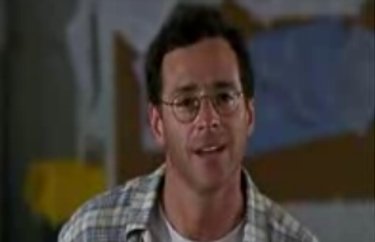By GREG RISLING, AP
April 20, 2010
Few people see legalized marijuana as a way to boost the economy and create jobs, according to an Associated Press-CNBC poll.
About a quarter of those polled said legalized pot would lead to more jobs in their communities; 57 percent said there would be no effect. About a third think the economy would improve, while 46 percent foresee no impact.
"I guess it could make money, but it would also cost money to prosecute people who get into trouble, like" driving under the influence, said Amanda Leonard, 37, of St. Augustine, Fla. "I think it would even itself out."
People under 30, the group most apt to favor legalization, were most likely to see pot as a way to help the economy.
"I think with legalization we are going to have bigger revenue," said Roy Hernandez, 20, of Santa Monica, Calif. "I think it's a benefit moneywise and it's a benefit for the community because I think it would make the crime rate go lower."
If marijuana was decriminalized, more Americans favor private businesses selling it (54 percent) than the government (36 percent). But just 24 percent said they would be interested in investing in a company that sells pot.
And while 62 percent approve of states taxing the drug, with people from the West most likely to back the idea, only a third felt the levies would make a significant contribution to state budgets.
Still, Scott Callahan, 50, of Alton, Ill., feels every little bit would help.
"It's not a cure-all, but revenue is revenue," he said.
The AP-CNBC Poll was conducted April 7-12 by GfK Roper Public Affairs and Media. It involved interviews with 1,001 adults nationwide on landline and cellular telephones. It has a margin of sampling error of plus or minus 4.3 percentage points.
April 20, 2010
Few people see legalized marijuana as a way to boost the economy and create jobs, according to an Associated Press-CNBC poll.
About a quarter of those polled said legalized pot would lead to more jobs in their communities; 57 percent said there would be no effect. About a third think the economy would improve, while 46 percent foresee no impact.
"I guess it could make money, but it would also cost money to prosecute people who get into trouble, like" driving under the influence, said Amanda Leonard, 37, of St. Augustine, Fla. "I think it would even itself out."
People under 30, the group most apt to favor legalization, were most likely to see pot as a way to help the economy.
"I think with legalization we are going to have bigger revenue," said Roy Hernandez, 20, of Santa Monica, Calif. "I think it's a benefit moneywise and it's a benefit for the community because I think it would make the crime rate go lower."
If marijuana was decriminalized, more Americans favor private businesses selling it (54 percent) than the government (36 percent). But just 24 percent said they would be interested in investing in a company that sells pot.
And while 62 percent approve of states taxing the drug, with people from the West most likely to back the idea, only a third felt the levies would make a significant contribution to state budgets.
Still, Scott Callahan, 50, of Alton, Ill., feels every little bit would help.
"It's not a cure-all, but revenue is revenue," he said.
The AP-CNBC Poll was conducted April 7-12 by GfK Roper Public Affairs and Media. It involved interviews with 1,001 adults nationwide on landline and cellular telephones. It has a margin of sampling error of plus or minus 4.3 percentage points.







Comment